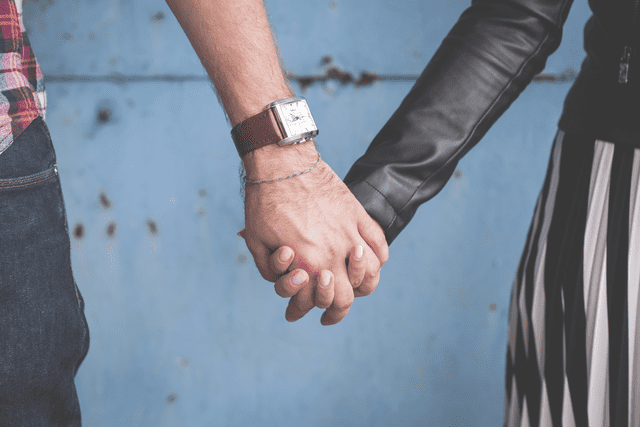Should Individuals Recovering from a Substance Use Disorder Date Each Other
Should people in long-term recovery date each other? It’s a question we get a lot, and unsurprisingly so.
An estimated 22 million Americans—about 9% of the country’s population— are in recovery from a drug or alcohol use disorder. And many of them have pursued treatment through group-focused recovery options, including Alcoholics Anonymous and inpatient and outpatient treatment centers.
During recovery, people who misuse substances are exposed to many other individuals dealing with similar experiences and struggles. Recovery is a vulnerable time, and it’s not uncommon for those in treatment from drug or alcohol misuse to seek out companionship from their peers. Many feel as though nobody can understand them quite like the people they’re meeting in help groups. This often leads to feelings of romantic attraction—though it’s not always a good idea to pursue those feelings. Here’s why.
Relationships and Substance Use Recovery
It is recommended that people in recovery do not immediately rush into new relationships. Bonds related to sharing a common journey may be intense, but with both individuals in a state of extreme vulnerability and active healing, relationships can quickly become stressful or problematic. They may also interfere with the recovery process.
Individuals in recovery and actively in relationships may lose sight of their mental health goals. While relationships can serve to strengthen individuals in the right circumstances, recovery is an inherently tenuous time. Those who are actively seeking treatment need all of the mental energy they have to focus on the emotional adjustment of overcome the power of their substance use, as well as the side effects that accompany this period.
There’s another problem, too. It is estimated that more than 85% of individuals relapse within a year of treatment, and that two-thirds of people who misuse substances relapse within just weeks or months of beginning treatment. Dating a partner in recovery who relapses can greatly impact an individual’s own recovery. Both partners may end up relapsing together as well.
All relationships, new and old, have their difficulties. And dealing with the highs and lows of romantic relationships is difficult, even for those who do not have a mental health disorder. Those in early recovery may find it very tough to cope with the emotions of a relationship without the ability to turn to their go-to method for dealing with stress or discomfort. And if they do relapse, they may bring their partner down with them.
Dating Someone in Recovery
We’ve gone over why those in early recovery should abstain from relationships, but what about individuals who have been sober for years?
It is important to remember that substance misuse is a disorder—it never goes away, even when the substances are removed from the equation. People who are serious about their recovery and about maintaining strong mental health can certainly have a good relationship. They may even find comfort in their shared experience. But not all who are sober are also free from addictive behaviors, and these behaviors can easily translate into relationships.
For those who are further along in recovery and are interested in dating someone else who has walked the path of substance use and recovery, it is advised that they take it slow.
If both partners are hard at work on themselves and committed to a healthy relationship, there is no reason the partnership cannot thrive. If, however, one or more partners is still struggling with mental health issues, we advise putting any relationships on hold until there is more stability.





